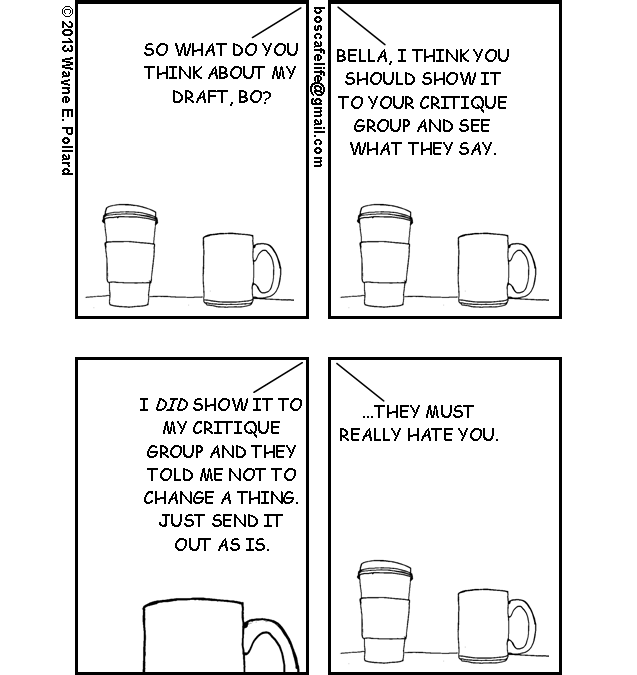Seasoned writer or a newcomer, workshops are great places helping you see needs improvement from fresh perspectives. However, there are a few things you need to be aware of before you get into one.
- Don’t Share a Piece Without a Middle
In my final year of undergrad, one of my classmates turned in a piece with a beginning and a conclusion. No middle. It’s like structuring an argument without supporting details. The best kind of critique you’ll get is what I gave my classmate: “I’m sorry, but you need the rising action.” This has strengthened my resolve to have a beginning and middle by the time I’m up for workshop. Sure, it’s better to have a fully complete short story or chapter, but at least be sure to stick with having that middle.
- Don’t Hand Back A Bag of Vague Compliments
A comment like this: “I like this. Good job,” doesn’t tell an author anything. I’ve gotten these comments on my fanfiction stories. I’ve told this to other writers. They’re nice. Just, really damn nice. But they don’t improve anyone’s work. Instead, as my friend Christina Marie of the blog, Dragons, Zombies, and Aliens says, “Put it into a sandwich critique.” How this works is that you first state what you liked about the piece. Then, follow it up with what needs improvement, followed by another round of what worked well. Be sure to cite examples from the draft for both praise and critique. I’ve been following this idea for a few years, and it’s helped me become more detailed and effective when workshopping.
- Listen in Workshop
Getting advice or hearing people misinterpret a work can be difficult to take in, but there are things you need to hear. Sometimes, there are just ways to make a piece stronger. Just in a recent workshop, I was told the stakes weren’t clear enough in my opening chapter. At the time, I thought the stakes were pretty clear–there was a “clear” suggestion that something was after the character. In the next draft, I realized my readers were right. Instead of having danger hanging in the background, I moved them forward. Even weirder, a character in that draft came in earlier and provided so much more tension. It came out stronger than the original draft, so be sure to never discount a piece of advice.
- Take Some of the Advice
To be clear, not all advice will work for a draft. In an extreme case, someone might suggest a piece of advice that’s more fit for a work of fantasy than a piece of literary fiction. Other times, you’ll just have too many voices saying contradictory things. Having been in these large workshop situations, it really helped me to learn where to let advice go—such as when many a few voices say one thing—and when to accept—when many people agree on something. It does take some time to figure out what to take and what to leave in critiques. The more you practice, the better you get. Trust me.
So, what now? Find a workshop group. Really. There might be other Dear God Please, Do Not Do These Kinds of Things Ever moments you learn from. Be sure to be open, be kind, and not afraid to wrangle that NaNo behemoth.
Meet the blogger:
 MORGAN MILLER is a recent graduate of the Hamline University Creative Writing BFA program. A fiction writer by impulse, Miller explores any and all genre of fiction she can, but her focus is in the fantasy genre itself. She is never seen without a notebook and pen. Her favorite thing in the world is a skirt with pockets.
MORGAN MILLER is a recent graduate of the Hamline University Creative Writing BFA program. A fiction writer by impulse, Miller explores any and all genre of fiction she can, but her focus is in the fantasy genre itself. She is never seen without a notebook and pen. Her favorite thing in the world is a skirt with pockets.


